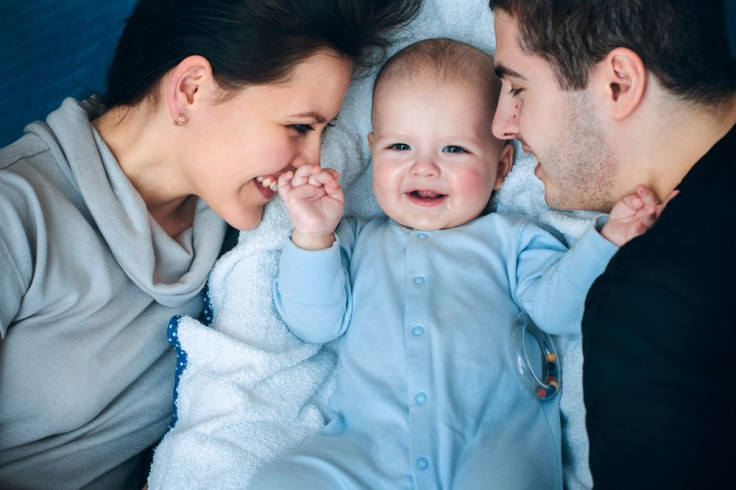Richard Branson's Virgin Management Grants Year-Long Parental Leave To Boost Health, Happiness

Richard Branson, founder of the Virgin group, is showing his support for a newly implemented, year-long parental leave policy for Virgin Management’s UK employees.
“If you take care of your employees, they will take care of your business,” Branson said in a press release announcing the new policy. “As a father and now a granddad to three wonderful grandchildren, I know how magical the first year of a child’s life is, but also how much hard work it takes. I’m delighted that we can offer this support to our staff so that they can enjoy parental leave to the full as we continue our work in changing business for good.”
Shared parental leave was first introduced in the UK in April 2015; working parents can either “share a pot of leave,” or they can take the time off together. Either way, if employees have been with the company for four years, they are eligible to receive 100 percent of their basic salary for a full year. Employees who have been with the company fewer than two years are eligible for 25 percent of their salary during leave; it’s all service-related.
“The introduction of the new Shared Parental Leave legislation was a great opportunity for us to review our existing maternity, paternity, and adoption benefits, and offer something special to our people,” said Josh Bayliss, CEO of Virgin Management. “Having a child is a life-changing experience and this policy means our employees have the opportunity to enjoy time with their families and have a great career.”
Ultimately, Branson and his team are supporting such a policy to ensure health, well-being, and happiness — and there’s science to back it up.
Family leave leads to positive economic outcomes
When working with the National Partnership for Women & Families, the Center for Women and Work at Rutgers University found families, businesses, and the public all benefit from paid parental leave. Generous leave led to “greater labor force attachment; increased wages for women, reduced spending in the form of employee replacement costs; and reduce public assistance, such as food stamps.”
It also reduces mothers’ mental stress
One study published in the journal Epidemiologic Reviews finds parental leave policies reduce physical and mental stress levels in women “who, historically, held the majority of the burden childcare and household responsibilities.” With both parents home, not worried about pay, they’re able to spend quality time with their children. And children who develop stronger relationships with their parents are found to be better friends, more tactful, and flexible in certain social situations.
And mothers sleep more
Sleep deprivation wreaks havoc on just about everyone, but especially new mothers. Sleep disruption negatively affects next-day function, so researchers at the Queensland University of Technology tested sleep levels of new mothers, as well as their effect on daytime sleepiness. The results showed new mothers wake in the night to tend newborns, and the number of times they wake remains consistent during the first 18 weeks post-birth. The quality, not quantity, of their sleep made a real difference, and it’s something that improves when both parents are on hand.
Postpartum depression occurs less with more leave
With poor maternity leaves in place, women are back to work not long after birth. But a study from the University of Maryland showed the more time women take after giving birth (up to six months), the better protected they are from experiencing postpartum depression. As it stands, about 13 percent of mothers experience this type of depression, with similar symptoms to clinical depression.
Postpartum depression, if untreated, does affect children. It makes it difficult for newborns to develop a secure attachment to their mother, of which they need in order to avoid becoming withdrawn, passive, dependent, and more aggressive and destructive, according to a 2004 pediatric study.
Basic social support for families is 'cornerstone of progress'
The Harvard School of Public Health found an estimated 930 million children under age 15 are raised in homes where adults are working; 66 percent of families where parents leave children home alone see an increase in child accidents and emergencies; and 35 percent of some cases children suffered from developmental or behavioral problems.
Present parents are generally key to children developing healthily, but “infants in particular need close, positive relationships with adults,” Sean Brotherson, a family science specialist at North Dakota State University, explained. Safe, attentive environments foster healthy brains, namely regions responsible for regulation emotions, in addition to lessening the chance of adaptive responses, like fear and anxiety.
Published by Medicaldaily.com



























